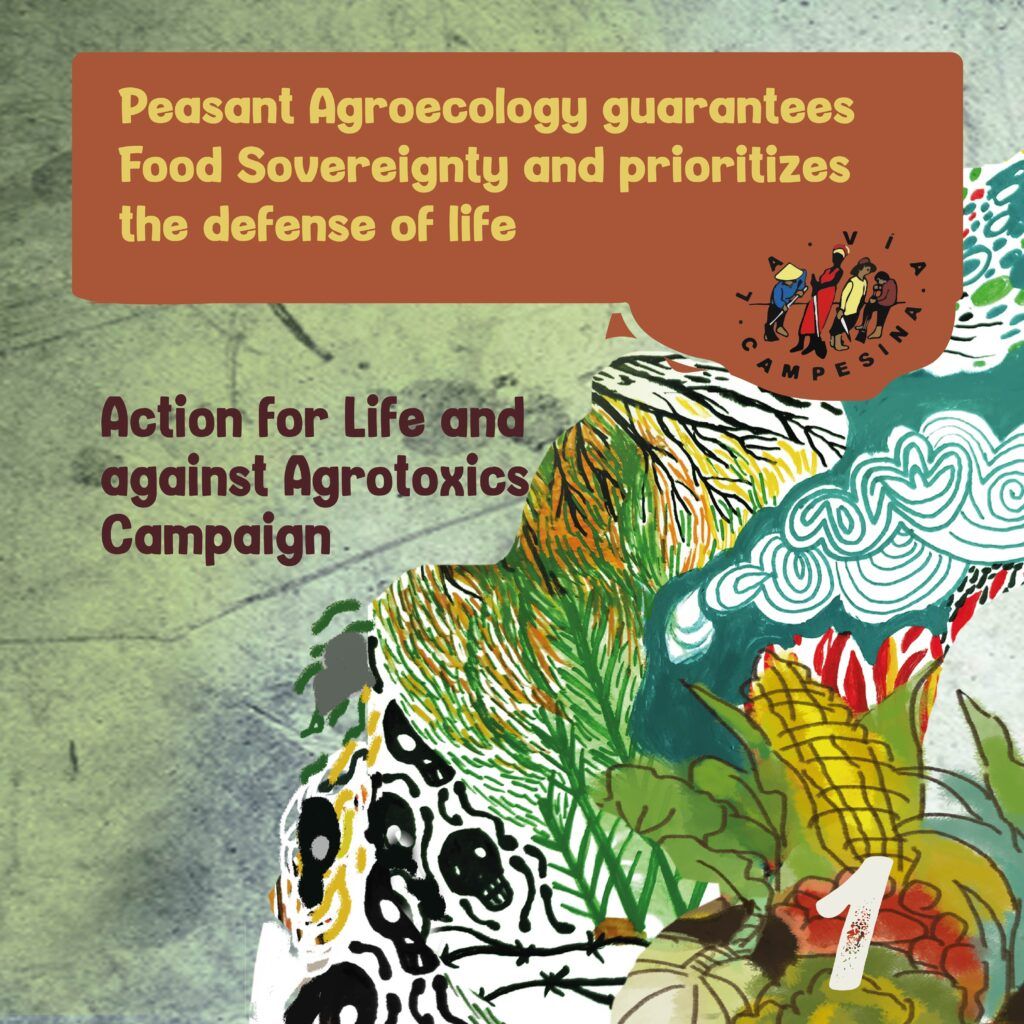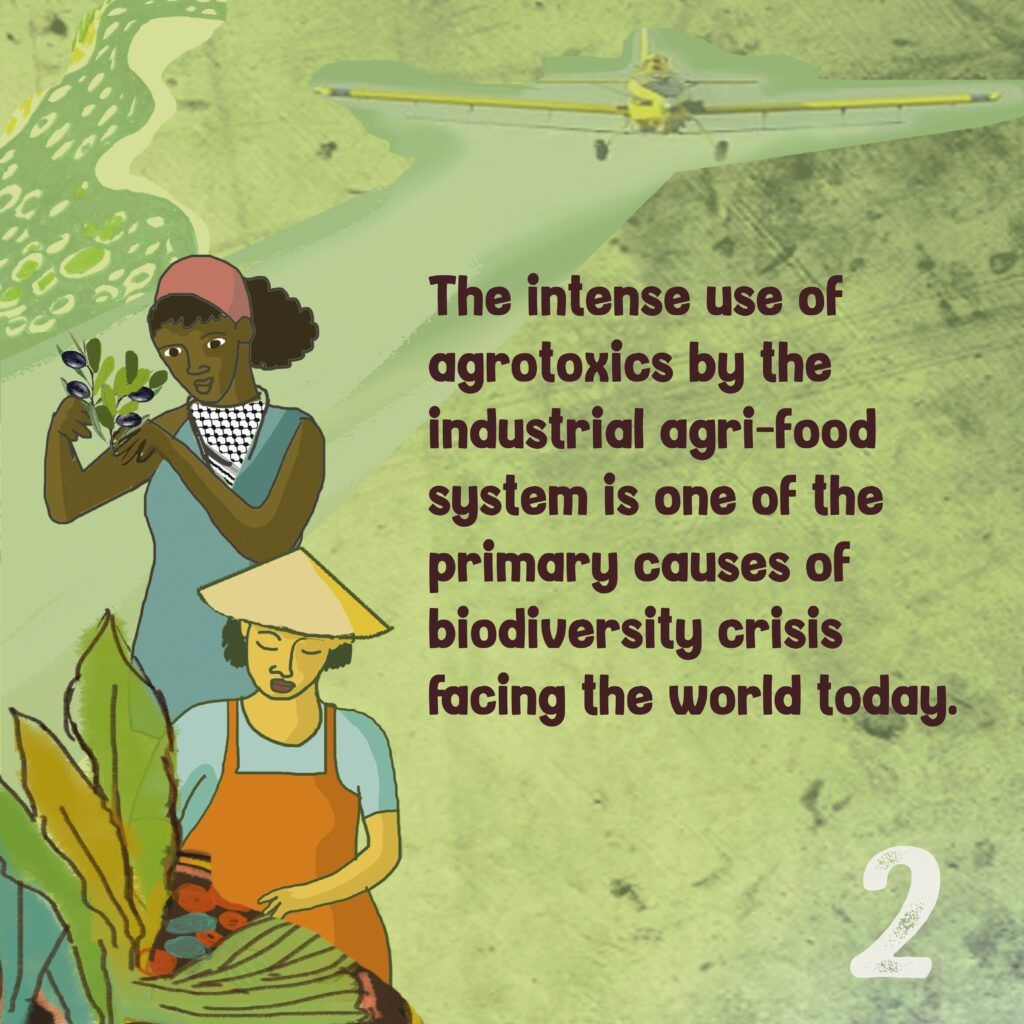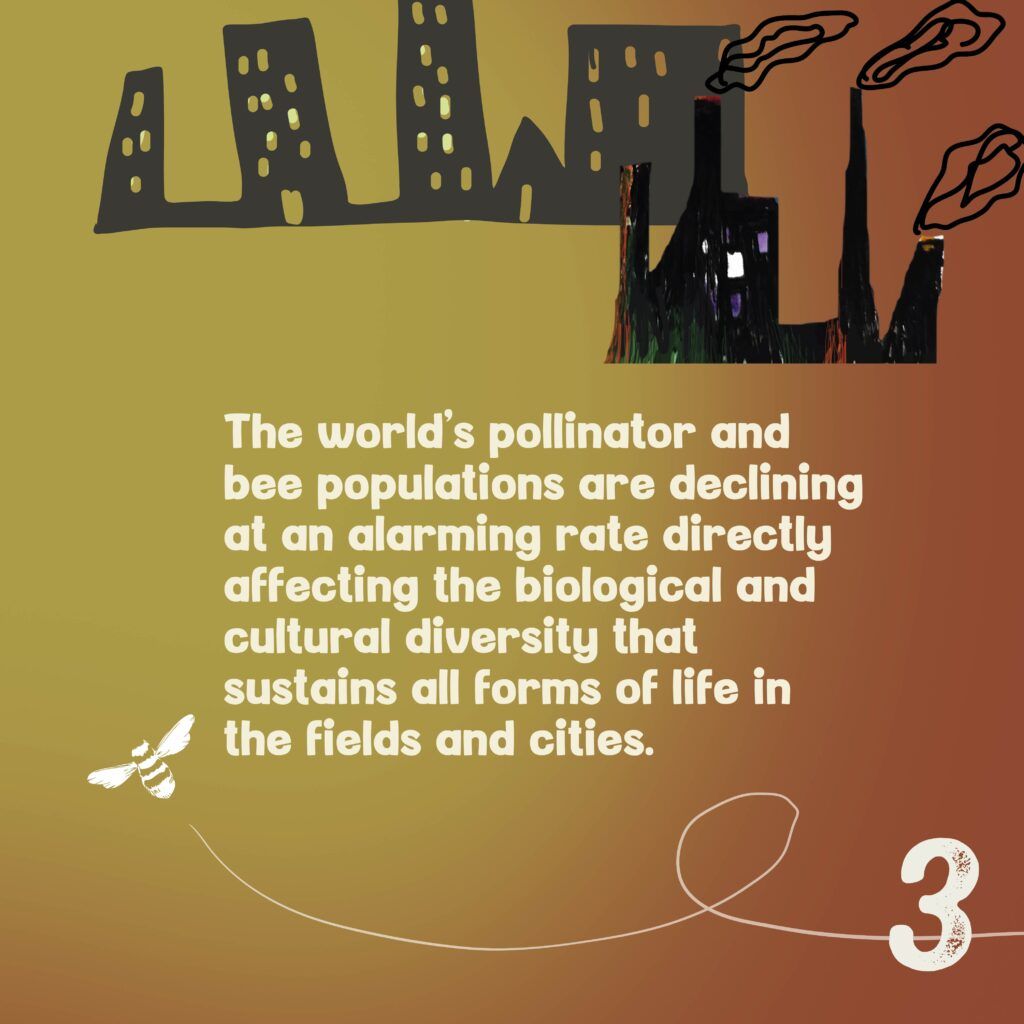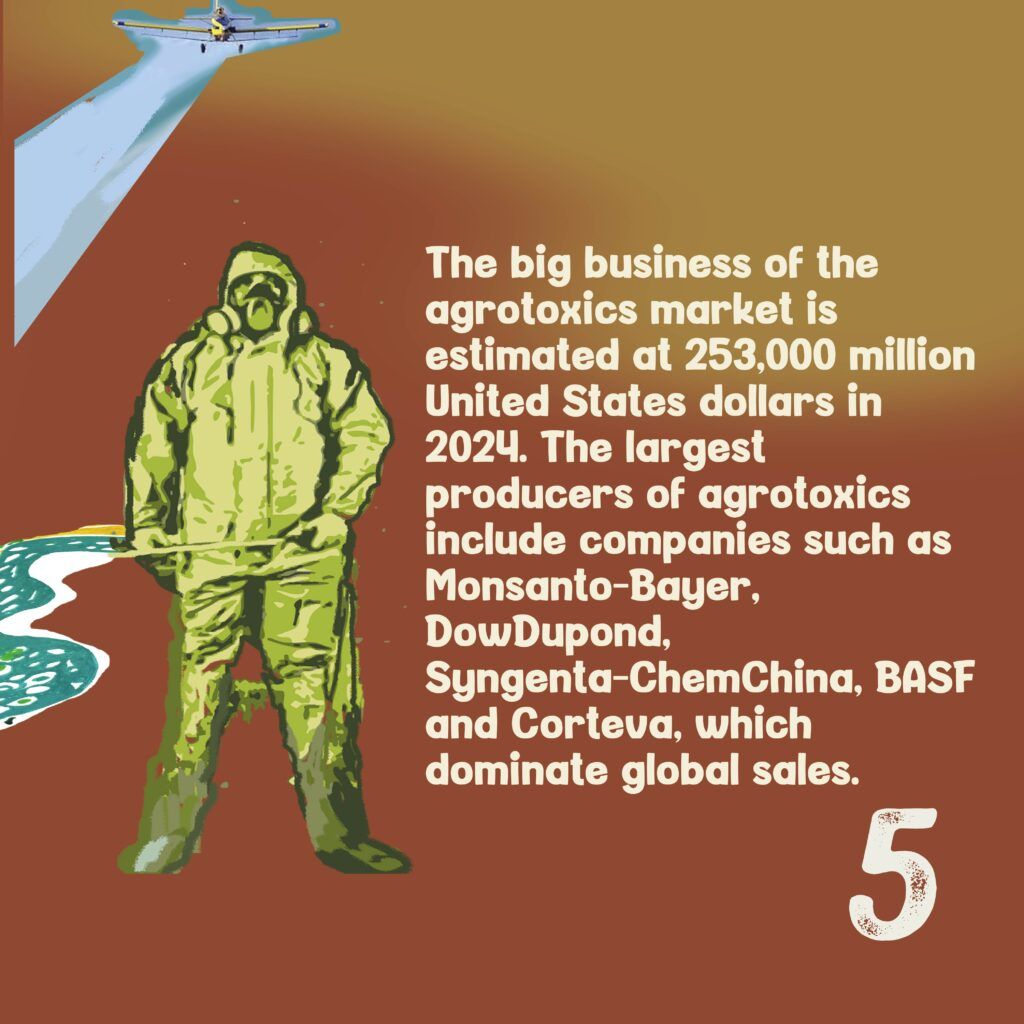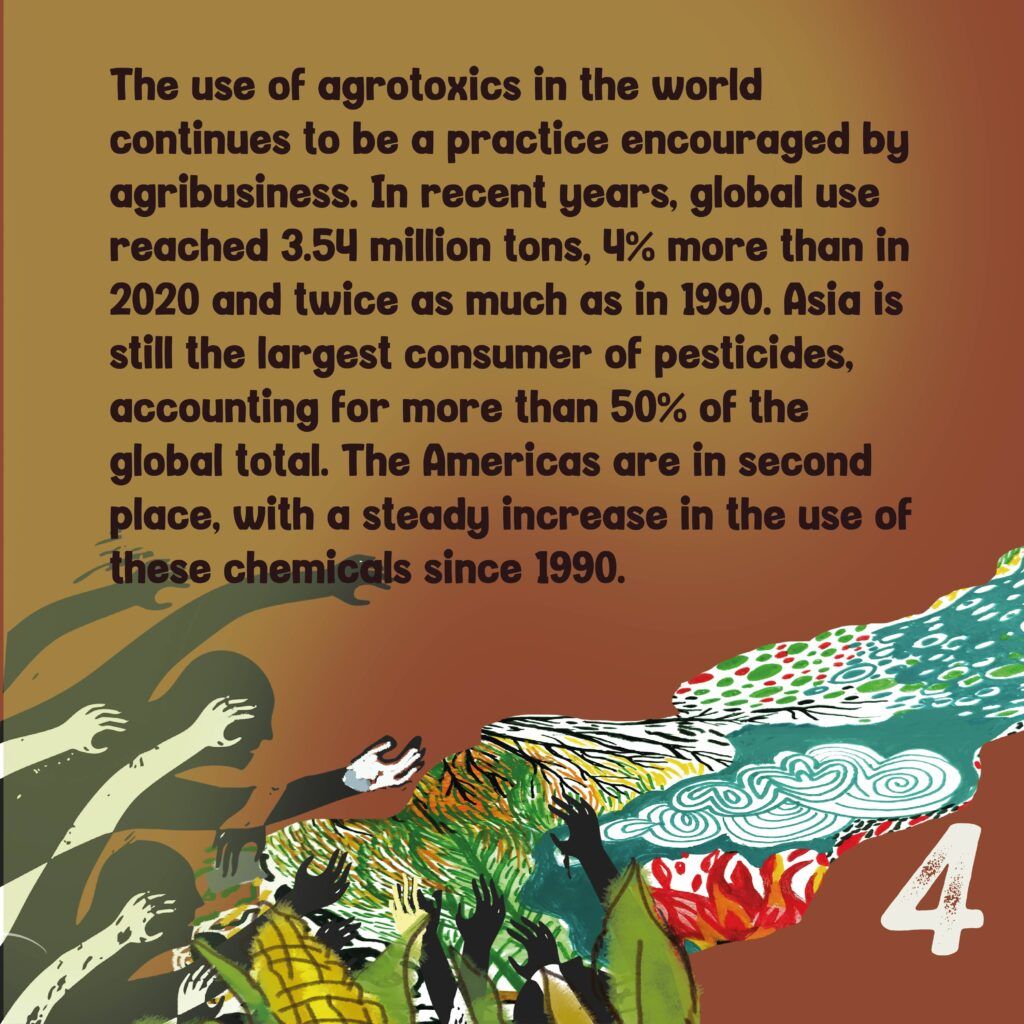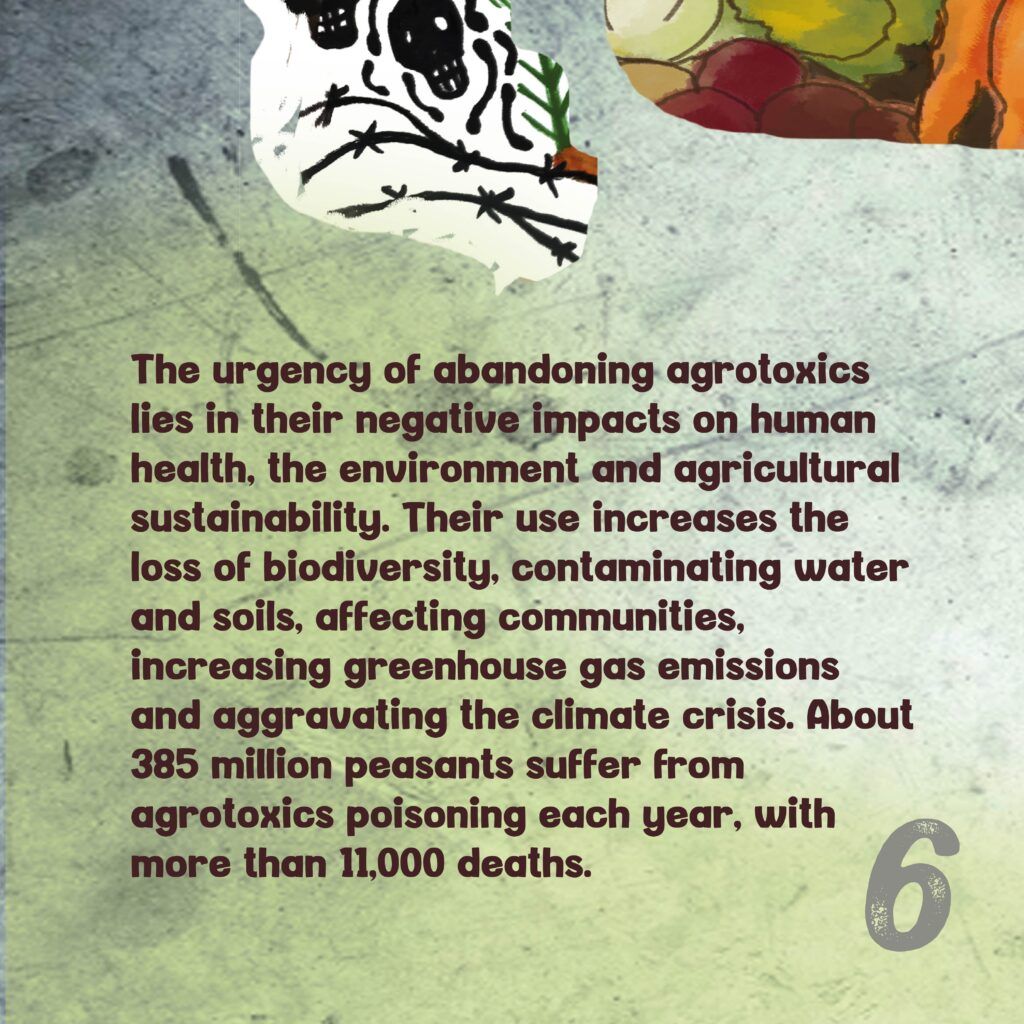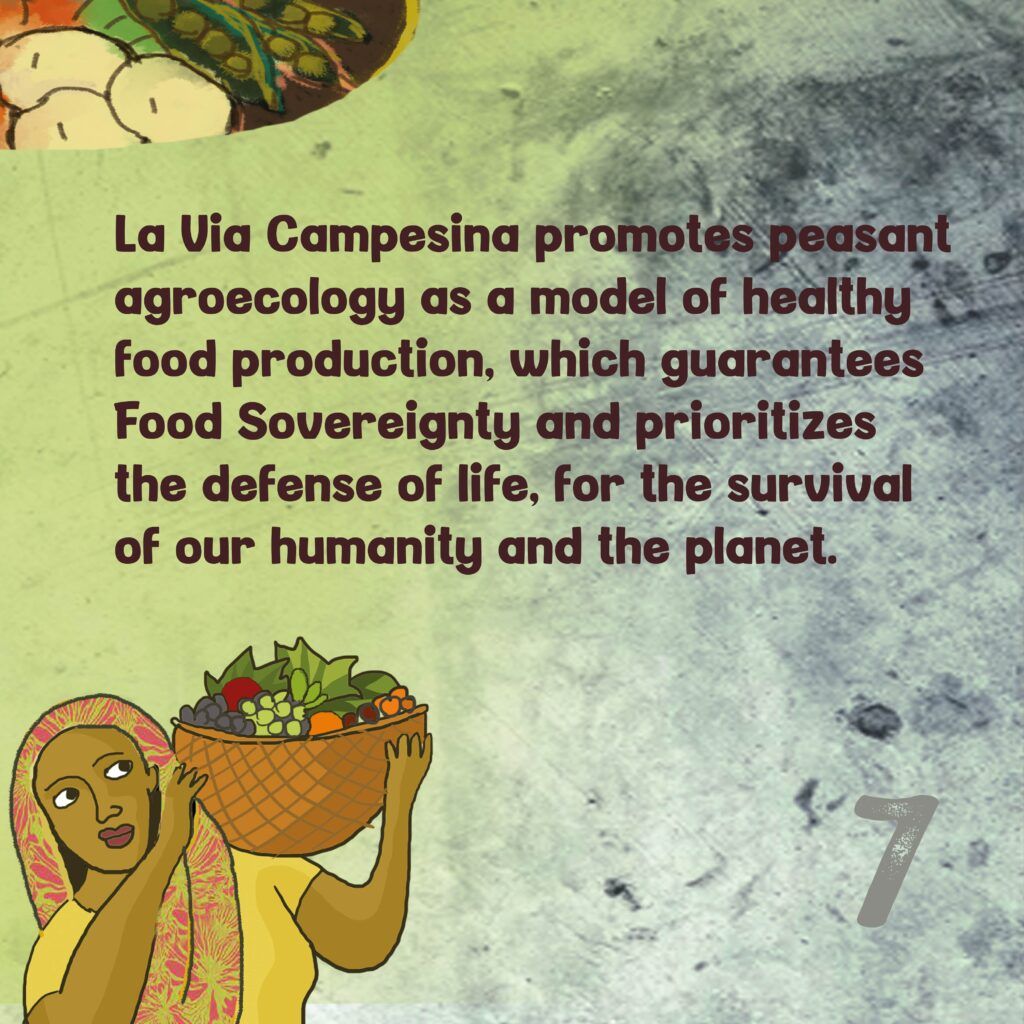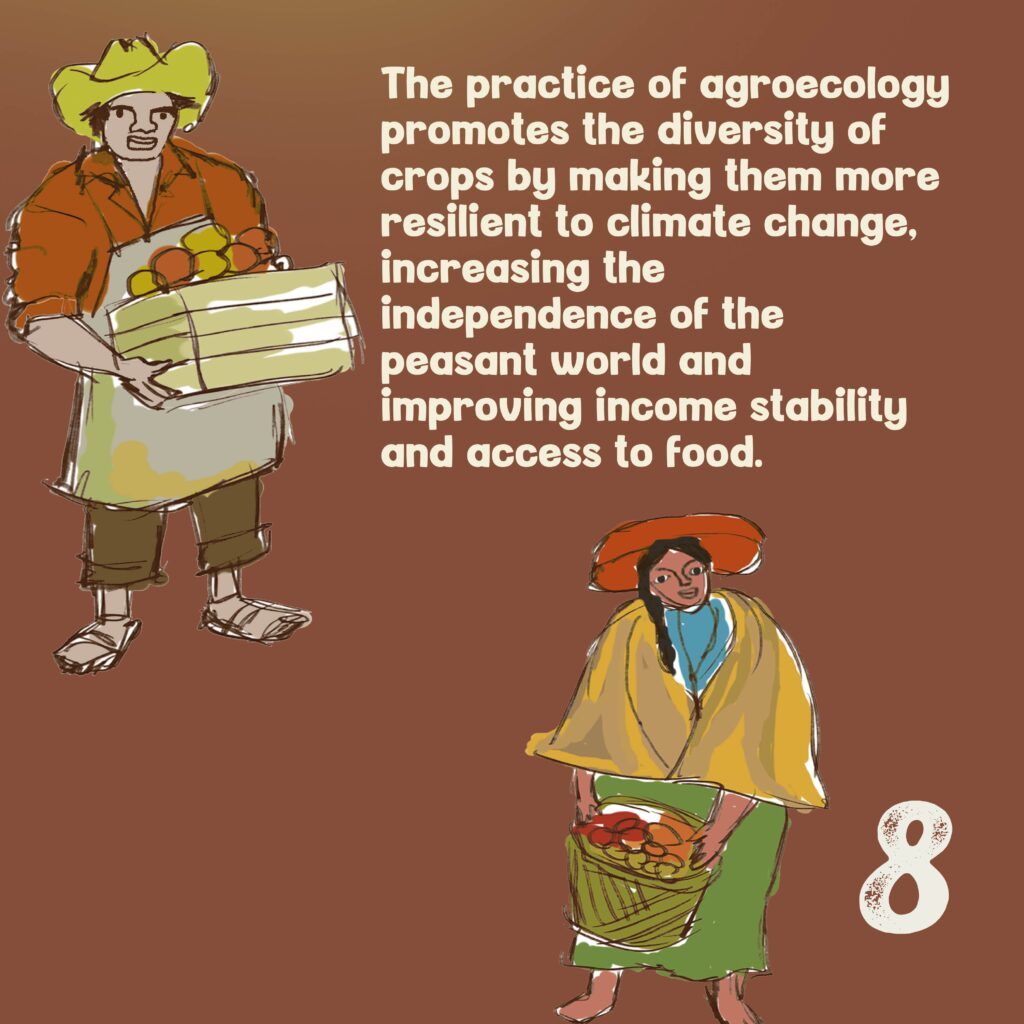03 Dec: Peasant Agroecology guarantees Food Sovereignty and prioritizes the defense of life
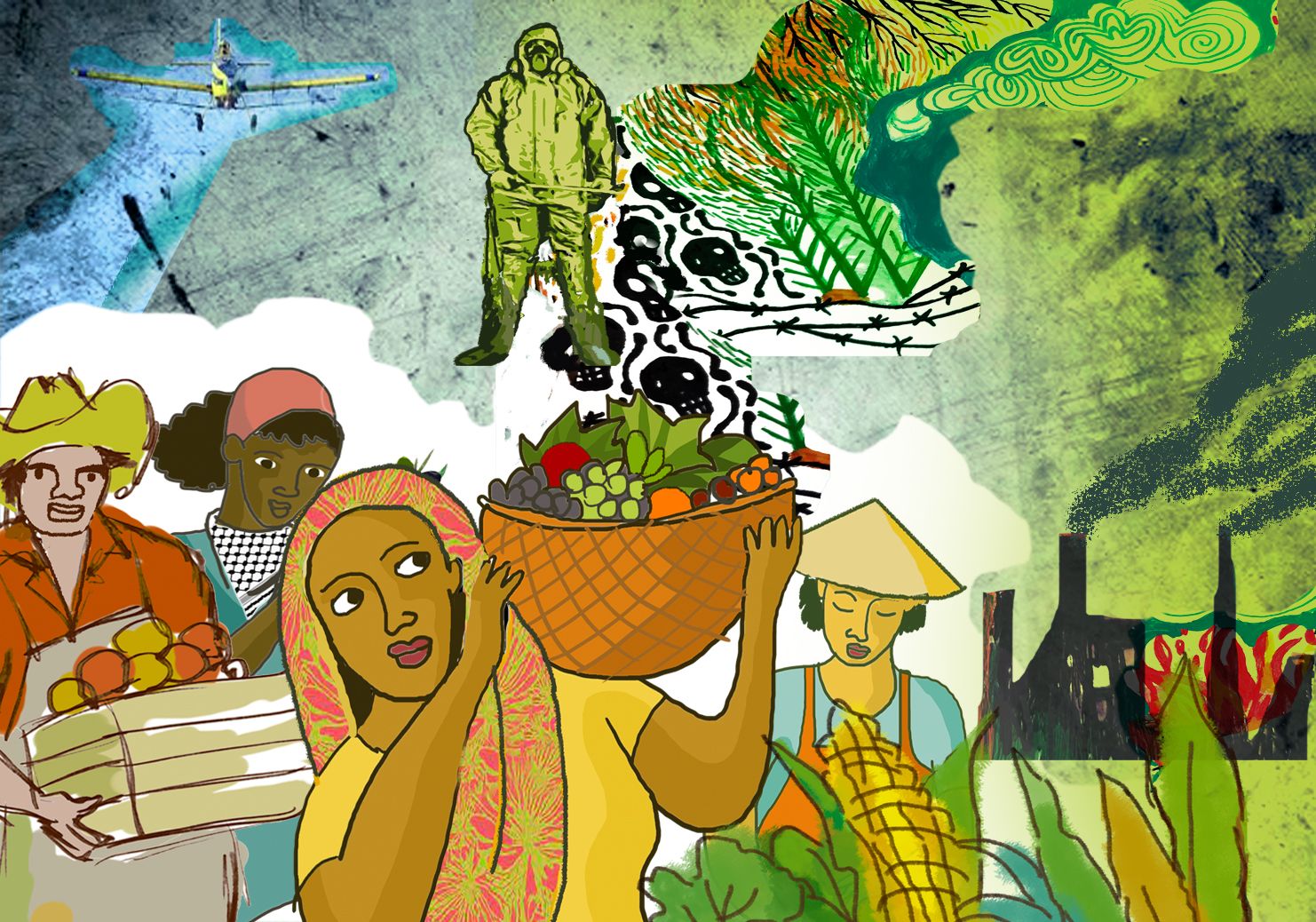
December 3 – International Day of Action for Life and against Agrotoxics
Today, December the 3rd, La Via Campesina continues its campaign to ban agrotoxics. The intense use of agrotoxics by the industrial agri-food system is one of the primary causes of biodiversity crisis facing the world today. The world’s pollinator and bee populations are declining at an alarming rate directly affecting the biological and cultural diversity that sustains all forms of life in the fields and cities. It is therefore imperative that on this day, we affirm to the world that Peasant Agroecology and Food Sovereignty are the urgent and necessary transformations if we want to sustain life.
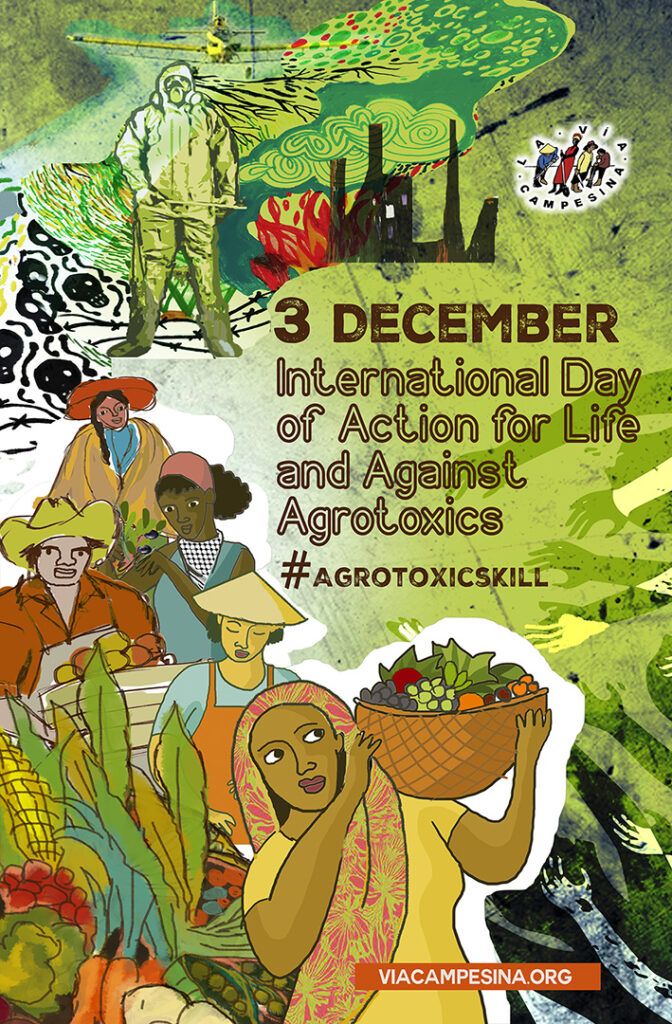
The use of agrotoxics in the world continues to be a practice encouraged by agribusiness. In recent years, global use reached 3.54 million tons, 4% more than in 2020 and twice as much as in 1990. Asia is still the largest consumer of pesticides, accounting for more than 50% of the global total. The Americas are in second place, with a steady increase in the use of these chemicals since 1990.
The big business of the agrotoxics market is estimated at 253,000 million United States dollars in 2024. The largest producers of agrotoxics include companies such as Monsanto-Bayer, DowDupond, Syngenta-ChemChina, BASF and Corteva, which dominate global sales.
The urgency of abandoning agrotoxics lies in their negative impacts on human health, the environment and agricultural sustainability. Their use increases the loss of biodiversity, contaminating water and soils, affecting communities, increasing greenhouse gas emissions and aggravating the climate crisis. About 385 million peasants suffer from agrotoxics poisoning each year, with more than 11,000 deaths.
Faced with this situation, we La Via Campesina promotes peasant agroecology as a model of healthy food production, which guarantees Food Sovereignty and prioritizes the defense of life, for the survival of our humanity and the planet. Peasant Agroecology not only poses a solution to the problems of the climate and health crisis, but also reinforces a fairer and more sustainable economic system that allows peasants to become independent and succeed in fighting against transnational corporations. It also decreases the risk of diseases by also protecting the health of the land, the protection of fauna, pollinators and natural pest controllers.
The practice of agroecology promotes the diversity of crops by making them more resilient to climate change, increasing the independence of the peasant world and improving income stability and access to food. In this #3Dic it is important to affirm to the world that Peasant Agroecology and Food Sovereignty are the urgent and necessary transformations if we want to sustain life, as stated in the Declaration on the Rights of Peasants and Other People Working in Rural Areas, specifically Art. 14.2 “Peasants and other people working in rural areas have the right not to use hazardous substances or toxic chemicals, such as agrochemicals or agricultural or industrial pollutants, and not to be exposed to them.”
#AgrotoxicsKill

